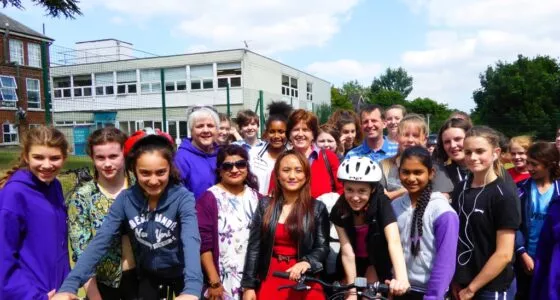Dr Colin Laverick, Acting Headteacher at Sydenham High School GDST, explains the latest changes to the exam system and the return of linear courses with exams at the end.
And so the pendulum swings again. Post-election the way is finally clear for change to our exam system; linearity is the government’s buzzword as it reforms GCSEs and A levels. Some parents, and certainly grandparents, will recall the days when linearity was the established order of the day. You studied for two years (for O level and then for A level), did a mock exam to gain familiarity with the exam, and then took the real thing right at the end.
But then (according to the government) the rot set in. GCSE was introduced and then A levels were re-structured into AS and A2, and all the qualifications became chopped up into bite-sized ‘modules’, which could be examined as many times as it took to get a decent grade, and then ‘banked’. A ‘learn it, forget it’ culture developed, and grade inflation undermined the credibility of the system.
So now we are returning to linear courses with exams at the end. The ideal is certainly an honourable one: rather than taking up lots of valuable teaching and learning time with revising for modules and doing innumerable past papers as practice, courses can be constructed which are more challenging, more interesting and more meaningful. That doesn’t mean that pupils can’t check how well they are doing as they go along because externally examined modules can be replaced by meaningful internal tests and progress checks, all with high quality feedback.
The problem isn’t so much the principle behind it as the breakneck speed at which the reforms are being introduced – and not just fast, but all at once. Hence, ‘new’ GCSEs in English and mathematics will be first taught in Year 10 from September 2015, as will a tranche of new A level courses. The following year, the rest of the ‘core’ GCSE subjects come on stream, along with A levels in maths and languages.
The GCSEs will be set at a different standard to the current versions – the latest announcement (17 June 2015) indicating that they will be much harder – with a grading system from 9 (high) to 1 (low) rather than the current letter grades. For several years, there will be pupils with a mixture of different kinds of GCSE result, some in numbers and some in letters.
A levels will be at the same standard and grading system as at present, but there is a deliberate intention, somehow, to make them ‘harder’ in terms of content – in most subjects (like sciences and business studies) by adding more maths; in English literature, by adding more books.
Unfortunately the DfE’s suspicion of internal assessment means that components like practicals in science, and speaking and listening in languages, will be increasingly marginalised.
The future of the AS level is in some doubt, because although it will be available, and is likely to cover the first year of the full A level course content (so might be seen as a progress check), results won’t count towards the final A level grade. A lot will depend on how universities view the AS results, and whether they encourage schools to continue with it.
As with any change to exams and qualifications, the role of teachers and the school is to act as shock absorber, ensuring that for the pupils the focus is always on high quality learning. Of course exams aren’t everything – in excellent schools like this one, pupils take them almost ‘in passing’. They get the best possible grades, but a lot more besides, and are not distracted or discouraged by the intricate workings of, and constant changes to the exam system. Our school will always remain committed to delivering an education that is broad and deep, which helps to realise our vision of developing confident, resilient and independent-minded young women.
Dr Colin Laverick, Acting Headteacher, Sydenham High School GDST
A version of this article appears in the June/July edition of BusinessToday, the magazine of the Southwark Chamber of Commerce.
